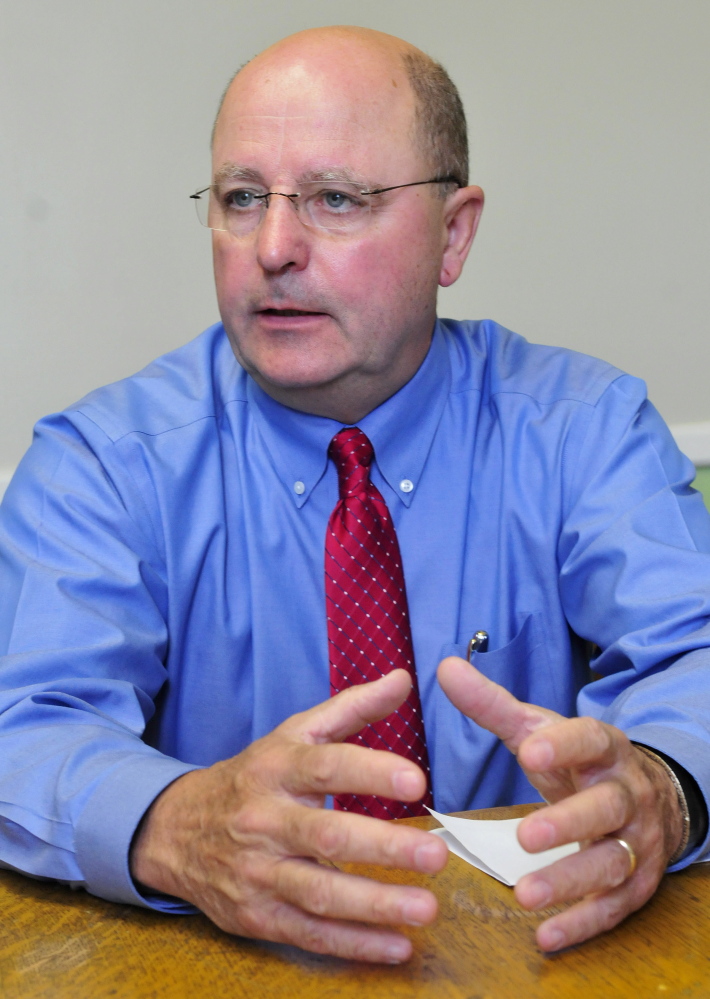SKOWHEGAN — A life-saving drug used to reverse symptoms of narcotic overdoses was approved for use by Somerset County sheriff’s deputies Wednesday by county commissioners.
Somerset County Sheriff Dale Lancaster said the drug, naloxone, commonly known by the brand name Narcan, will be carried and administered by deputies after a joint training session with Skowhegan police scheduled for next week.
“I’ve given this a lot of thought, and part of law enforcement’s mission is to save lives,” Lancaster said. “If a police officer has a tool, and that’s what Narcan is, a tool — it’s a nasal spray — that can save the life of someone who’s made a poor choice, I believe it’s incumbent upon us to use that medicine.
“We can’t judge who lives and who dies.”
He said sometimes law enforcement officers arrive on the scene of an overdose before an ambulance crew can get there and the time saved could mean a life saved. The antidote has no adverse effects and the deputies who administer it are exposed to no liability, he said.
County commissioners agreed, 4-0. Chairman Robert Dunphy, of Anson, wondered if such action would be “aiding and abetting” criminal activity because it is illegal to use or possess opiates without a prescription. Lancaster said it was not, noting the move is in no way encouraging or condoning the use of illegal drugs.
Lancaster said drug overdoses have become a reality in Maine and across the nation. He said if police can save a life, the long-term effect could mean a former heroin user seeking treatment and passing on the message that drug use is bad.
Lancaster said it was an ethical question. Commissioner Newell Graf, of Skowhegan, agreed, saying it was an easy question to answer in the affirmative.
“I think it’s a good thing,” Graf said.
Naloxone as an antidote immediately blocks the opiates from being absorbed into the body, giving the person time to get to a hospital for treatment, Lancaster said. He said the county will partner with Redington-Fairview General Hospital in Skowhegan to obtain the drug at no cost to the county.
He said fighting the opiate war has to be done in a three-pronged attack: education, treatment and enforcement.
The Legislature adopted a law allowing use of Naloxone that went into effect in 2014.
In Maine, a record 208 people died from drug overdoses in 2014, according to a news release from Maine Attorney General Janet Mills. Heroin, fentanyl and prescription opiates are the primary drugs involved in those overdoses.
Heroin overdoses have spiked in Maine and around the country. Drug overdoses now surpass car crashes as the leading cause of injury-related deaths for Americans between 25 and 65, claiming the lives of more than 100 people every day, according to the U.S. Centers for Disease Control and Prevention. More than half of those overdoses are the result of the use of prescription drugs or heroin.
Augusta’s MaineGeneral Medical Center last year used funding from a variety of sources to train Kennebec County sheriff’s deputies on the use of naloxone and hopes to train five additional sheriff’s departments that patrol in rural areas.
Doug Harlow — 612-2367
Twitter:@Doug_Harlow
Copy the Story LinkSend questions/comments to the editors.




Success. Please wait for the page to reload. If the page does not reload within 5 seconds, please refresh the page.
Enter your email and password to access comments.
Hi, to comment on stories you must . This profile is in addition to your subscription and website login.
Already have a commenting profile? .
Invalid username/password.
Please check your email to confirm and complete your registration.
Only subscribers are eligible to post comments. Please subscribe or login first for digital access. Here’s why.
Use the form below to reset your password. When you've submitted your account email, we will send an email with a reset code.